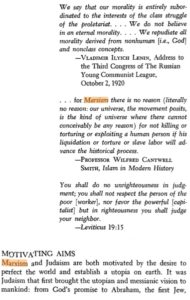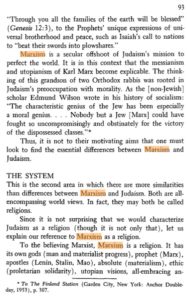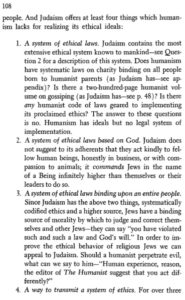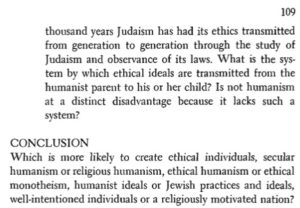“Nationalism is all about creating myths about how wonderful your country is,” says John Mearsheimer in a recent video.
In many ways, Jewish nationalism and white nationalism have more in common with each other than either do with Christianity. Both forms of nationalism prioritize action over belief, this world over the next world, peoplehood over theories, interests over principles.
A crude way to compare Jewish nationalism with white nationalism would be to compare the modern state of Israel with pre-1965 America (when the country was about 90% white and about 95% Christian), England and Australia. Where is social trust higher? In the Anglo nations.
While Protestantism focuses on individual salvation, Catholicism and Islam focus on the community, and nationalisms naturally focus on the nation. Race is real. Race matters. Race is the foundation of identity, notes Richard Spencer. Sometimes, however, other identities may have more importance to an individual than his racial one.
In a recent lecture, John Mearsheimer disagreed with Samuel Huntington’s book, The Clash of Civilizations, saying that religion does not matter nearly as much as nationalism for understanding how the world words. For example, the 30 Years War was mainly about national interests not religion.
What is human nature? Good or evil? White nationalism, influenced by Darwin, would view people first and foremost as animals competing with other forms of life for survival. Human nature is savage. In the Christian view, it is evil. In the Marxist view, it is good, it only needs a just and communist society to flourish. In the Jewish view, human nature contains urges to good and bad but it is usually easier to do bad and therefore man needs a ton of commandments to morally elevate him.
How do you morally educate people? From a nationalist perspective, you inculcate in-group identity and prioritize the well-being of your own kind over their competitors. From a Christian perspective, you change the heart through faith in God. From a Jewish perspective, you live by the Torah.
So which of these approaches have been the most successful? Well, the most successful, the most high-trust societies have been Anglo.
What is the meaning of life? From a nationalist perspective, the first meaning is to survive and the second meaning is to propagate your genes and to create a good and safe space for future generations of your people. From a Christian perspective, the purpose of life is salvation to the next life. From a Marxism perspective, the purpose of life is to create heaven on earth through the promotion of communism.
What are nationalist ethics? Those that promote the well-being of the nation. Jewish ethics mean what is best for Jews, white ethics mean what is best for whites, Japanese ethics mean what is best for Japanese.
What are religious ethics? Those that are taught by sacred texts (based in divine revelation in the monotheist faiths).
Almost all ethical systems practice dual morality — one morality for how you treat your in-group and a more relaxed morality for how you treat out-groups. The major exception to this trend is Christianity, in particular Anglo Christianity. That’s why Anglos make the best countries and the best citizens.
What is the source of morality? I asked Greg Johnson (Editor Counter-Currents.com) on Sunday.
Luke: “Do you believe in objective morality and objective good and evil?”
Greg: “Yes. I think that morality and good and evil and things like that are based on nature. I follow the classical Greek notion of Natural Law and Natural Right. I believe those are reasonable views, that we can come up with an ethics that is based on nature, that’s not based simply on social convention or simply on revelation and appeals to religion. Science and socio-biology gives us a lot of useful information for constructing this ethic. Larry Arnhart has written a book called Darwinian Natural Rights. He’s influenced by classical political philosophy and natural right thinking and yet he shows that socio-biology supports a lot of the naturalistic ethical ideas that you find in classical Greek and Roman political philosophy. That is the outlook that I think is most promising. By appealing to science and to classical philosophy, we can come up with a moral consensus and political consensus that is reason-based and science-based and that allows us to sidestep inherently contentious and sometimes violence-inducing things like appeals to religious revelation.”
On November 26, 2017, I asked Richard Spencer: “What is the source of morality?”
Richard: “That’s a very deep question.”
Richard’s phone rings. “Morality and theology are ways of building a group consensus without using direct force so that people feel like they are… I’m going to have to go. Someone just told me there is a major emergency.”
“There’s an evolutionary origin of morality.”
An orthodox Jew or Christian or Muslim will say that God is the source of morality and that God’s will was revealed in the Torah, from a Jewish perspective, or in the Bible and the person of Christ from a Christian perspective, and in the Koran from a Muslim perspective. Without a transcendent source for morality, we simply have different opinions on morality. There is no objective good and evil without God, but then there is only objective good and evil after one makes a subjective leap of faith to God and to His revelation, so how objective is this objective good and evil when it depends, at least in part, on subjective faith?
I quote from Dennis Prager’s book, The Nine Questions People Ask About Judaism:
And yet, for all these beautiful words, in much of the world, the word “Jew” is synonymous with dishonesty in business. How is that so ethical? Stalin’s Jews were among the biggest mass murderers of the 20th Century.





